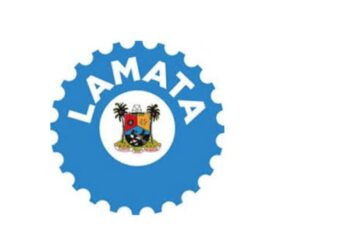Secondary schools across Nigeria could spend as much as ₦1.6 trillion to meet the West African Examinations Council (WAEC)’s new mandate requiring all centres for the West African Senior School Certificate Examination (WASSCE) to run fully on Computer-Based Testing (CBT) by 2026.
WAEC has directed that each accredited school must provide a minimum of 250 functional computers, a dedicated server, CCTV cameras, a local area network, and other digital infrastructure before it can be approved as a CBT centre.
In a statement, WAEC explained that the measure is part of its plan for a complete migration to CBT in order to strengthen examination security and efficiency.
> “Schools that cannot meet these standards will be assigned to external CBT centres. We will not compromise on the requirements,” the council stated.
Cost implications
Findings show that a fairly used desktop computer currently sells for between ₦250,000 and ₦300,000 at Lagos’ Computer Village. This translates to ₦62.5m–₦75m for the 250 units each school requires, with an average cost of ₦68m.
Nigeria has 23,554 approved WASSCE centres. If every school were to purchase the required number of systems, the total expenditure would amount to approximately ₦1.6 trillion.
Concerns from stakeholders
Many teachers and education stakeholders have expressed concerns about the feasibility of WAEC’s plan.
Gift Osikoya, a teacher, noted that while urban schools might adapt, rural schools could struggle with the costs and infrastructure needs such as power supply, internet access, and system maintenance.
Isaiah Ogundele, an education administrator, described the timeline as unrealistic, arguing that few schools currently meet the requirements for take-off.
Jessica Osuere, CEO of RubiesHub Educational Services, said the policy could boost examination integrity but urged WAEC to consider a phased rollout and partnerships to ease compliance.
Chris Nmeribe, a teacher, dismissed the directive as “laughable” given Nigeria’s economic realities.
Ike Osuagwu-Chilaka, an educationist, warned that costs would likely be transferred to parents, potentially worsening school dropout rates.
Global context
Observers have questioned Nigeria’s rush into full CBT adoption, pointing out that even the UK, despite its advanced digital infrastructure, is only planning a partial digital rollout by 2030. At present, British students still sit their GCSEs on paper, with limited computer-based components scheduled for introduction in 2026.
Digital readiness gap
Nigeria’s digital divide poses another challenge. According to the Universal Basic Education Commission (UBEC):
50% of public schools lack digital facilities
Only 36% of Nigerians use the internet
78% of young people lack digital literacy skills
These figures suggest that many students may struggle to adapt quickly to the new examination model.
Alternative proposals
Some stakeholders have recommended that WAEC consider the Joint Admissions and Matriculation Board (JAMB) model, where schools without the required infrastructure simply book slots for their candidates at accredited external CBT centres.
Others are calling for a cost-sharing arrangement where WAEC, governments, and private partners contribute to easing the financial burden on schools.



















































































 EduTimes Africa, a product of Education Times Africa, is a magazine publication that aims to lend its support to close the yawning gap in Africa's educational development.
EduTimes Africa, a product of Education Times Africa, is a magazine publication that aims to lend its support to close the yawning gap in Africa's educational development.